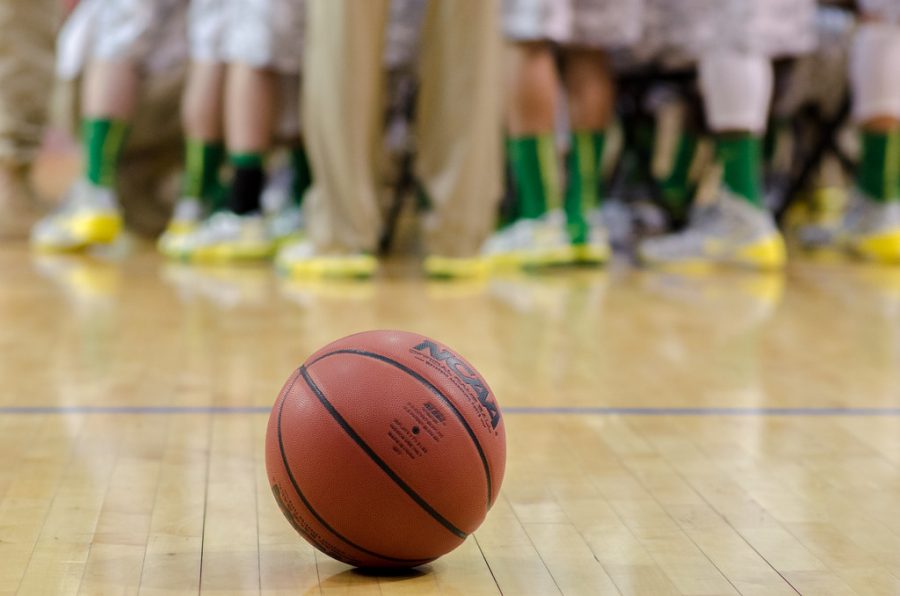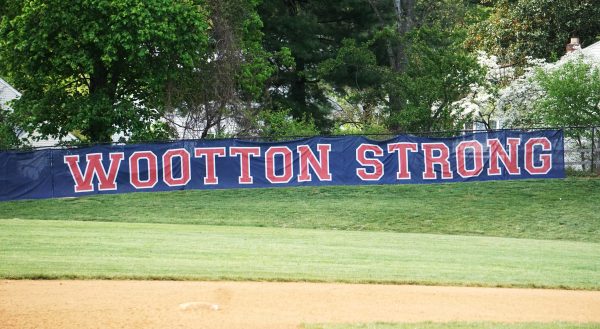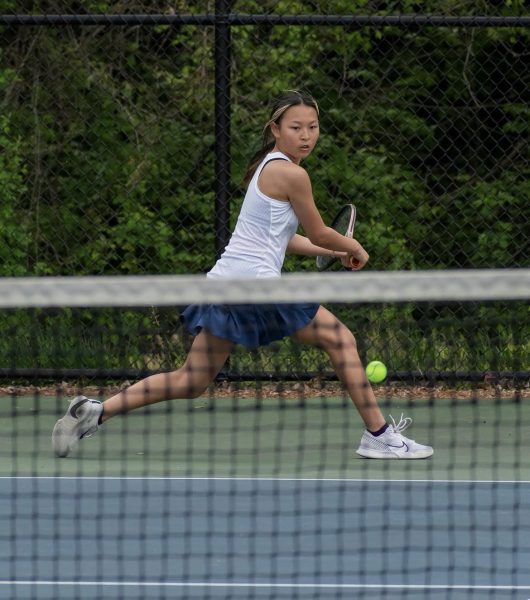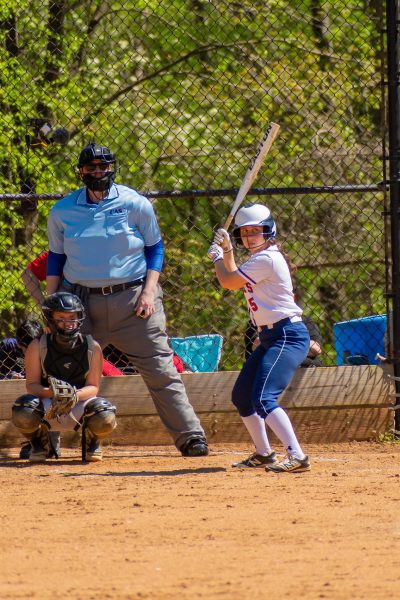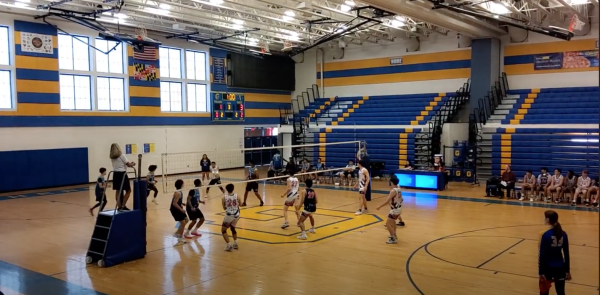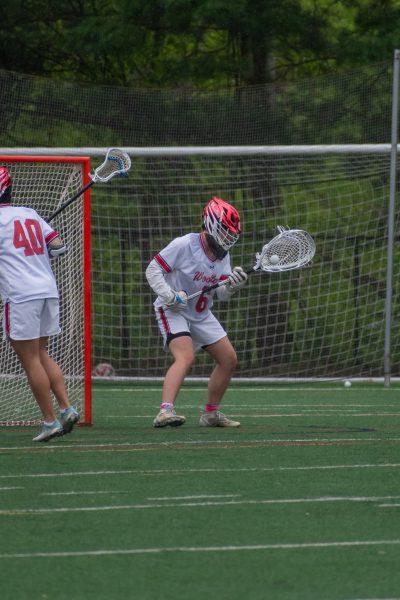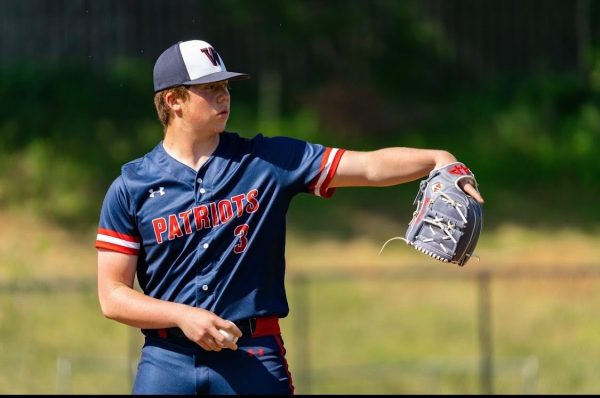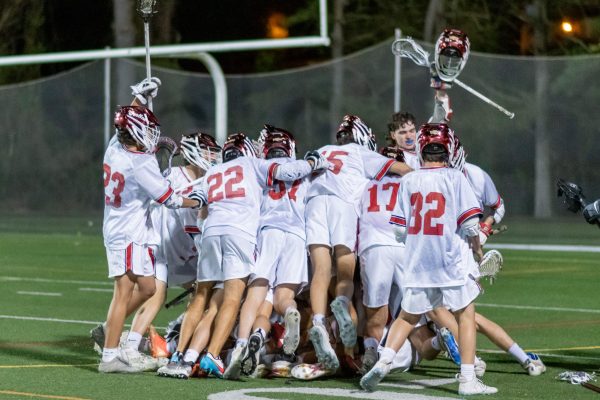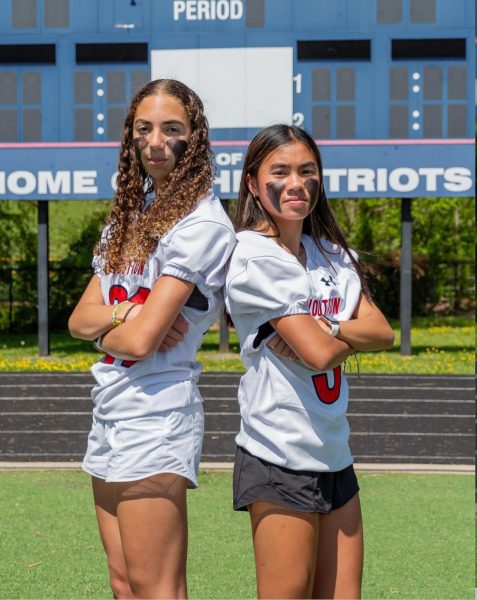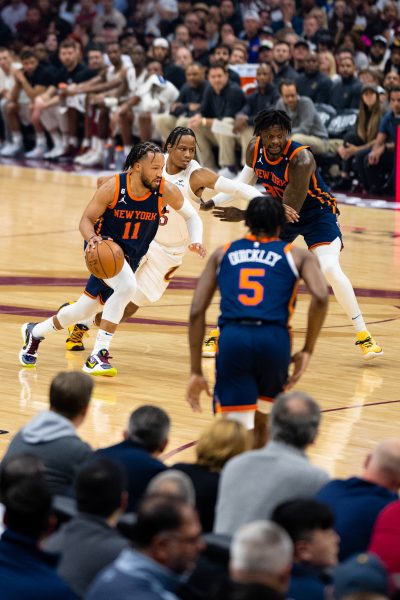Sports world erupts at NCAA following March Madness tournaments
Photo used with permission from Google Commons
The March Madness tournament revealed unfair differences in treatment of male and female athletes.
This year, the NCAA March Madness college basketball tournament faced controversy when the difference between the treatment of male and female athletes was exposed through social media.
Millions of people around the country look forward to the largest college basketball tournament in the world, which takes place throughout March. During the beginning of the tournament, a video went viral showing a fully equipped mens’ weight room and a mere dumbbell rack in the women’s facility. Receiving over six million views, “This Tik Tok exposed just one example of the kind of sexism that women’s sports face all of the time,” junior Jonah Geisner said.
Athletes took to social media, calling out the NCAA to address this discrepancy and supporting the women’s players. As pressure rose, the NCAA would go on to apologize about the situation and the women’s facility would eventually receive a state of the art weight room. Sophomore Alec Fleischer said, “The NCAA needs to make sure nothing like this happens again as it is completely unfair to the female athletes who work just as hard.”
It became clear after the first response that the NCAA was sending a message that the women participants did not matter as much as the men.
— Ryan Meyer
The NCAA initially responded with the claim that the discrepancy in the weight rooms was not about money, but a lack of space in the women’s facility. Right away, Oregon forward Sedona Prince released another video showing an abundance of space in a room that was located directly next to the initial weight room. Senior Ryan Meyer said, “It became clear after the first response that the NCAA was sending a message that the women participants did not matter as much as the men.”
Title IX is a federal civil rights law that protects people from discrimination based on gender. This law has helped reduce gender inequalities around the country, but some organizations such as the NCAA have received exceptions from this law. In the NCAA v. Smith (1999) the Supreme Court ruled that “although the NCAA collected fees from its federally-funded member institutions, it was not bound by Title IX.”
There are critics of the NCAA’s response as people either feel the NCAA did too little too late or that there was no action that needed to be taken at all. There is no doubt that the NCAA profits more off of the men’s tournament each year, but that reflects less about the women’s athletes and more on how the NCAA has chosen to structure the tournaments. According to thebiglead.com, “Women’s college basketball loses $14 million a year” and the NCAA president “Mark Emmert has never offered a solution to this.”
Social media has brought more awareness to this issue than there ever has been before. Change is being created each and every day and female athletes are working toward getting all the same opportunities that men have. Geisner said, “The inequalities of women’s sports are no longer just going to be accepted and I think this is a start to much more change to come creating a better situation for female athletes and coaches.”
Your donation will support the student journalists of Thomas S. Wootton High School. Your contribution will allow us to purchase equipment and cover our annual website hosting costs.
Brett Halpern is a 2022 graduate. When he's not writing articles, Brett enjoys playing sports, cooking, and biking. You can also find him at [email protected]


